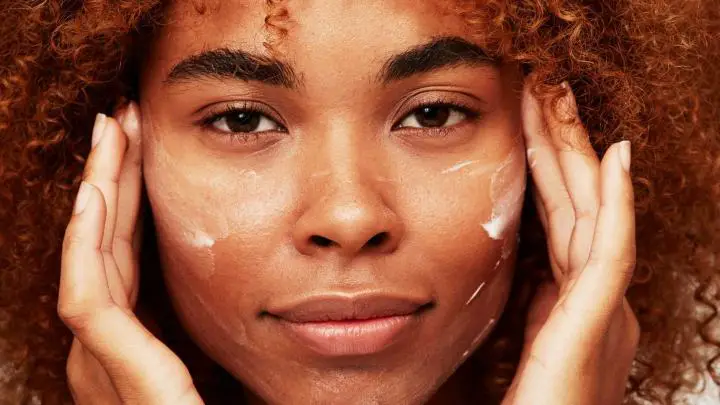There is probably nothing more annoying than having to deal with an uneven skin tone. Who doesn’t want clear, even skin? No one. While your skincare routine may be effective enough, you may still end up with an uneven skin tone.
The sun being one of the greatest enemies of the skin may be responsible for uneven skin color, especially if you do not use sun protection before exposing your skin to the sun.
Read ahead to find an in-depth explanation of what uneven skin tone is, the causes, and how to deal with it.
What Is Uneven Skin Tone?
Uneven skin tone means a change in both the texture and color of the skin. The most common form is discoloration, as it is the irregular darkening of the skin. This happens when the pigment cells release too much melanin to the skin.
The melanin produces dark spots and patches on the skin and this condition can be caused by several factors. Mind you, all skin types can have uneven skin color and texture.
Is Uneven Skin Tone Caused by Hyperpigmentation?
Not always, but hyperpigmentation may be a symptom of uneven skin tone. Uneven skin tone may be a slight discoloration around the cheeks or knuckles.
Similarly, the texture of your skin may be unbalanced too due to rough patches that can be caused by hyperpigmentation.
The most common cause of uneven skin texture and color is hyperpigmentation. Hyperpigmentation is a skin condition that causes dark spots and patches to appear on the skin. It happens due to excess production of melanin in the skin and lack of hydration.
Hyperpigmentation is harmless and doesn’t pose a threat to your well-being. However, hyperpigmentation and uneven skin color or texture can be symptoms of an underlying condition.
SEE: Skincare Routine: You Need These Products for a Solid and Fast Routine
What Causes Uneven Skin Tone?
There are several causes of uneven skin tone. Too much melanin can be produced in an area of the skin due to sun exposure or illness and injury, while lack of water can lead to rough patches on the skin.
Severe exposure of the skin to the sun without adequate protection can cause sun damage and dark spots. This is because the body tends to produce melanin to protect the skin from the sun.
Another cause is hormonal changes which can cause melasma to appear on the skin as brown or gray patches.
This usually occurs during the pregnancy stage and is due to estrogen and progesterone increase. When that appears on the skin, your skin tone automatically becomes uneven.
Aging is another factor for uneven skin color and texture. The body loses its ability to hold moisture as it ages. This can cause the development of age spots and dark patches on the skin.
The cause of uneven skin color may be hereditary and this includes skin disorders like vitiligo. Not getting enough sleep can cause discoloration by the appearance of dark circles.
SEE: How Does SPF Work? A Beginner’s Guide on Skin Protection
How Long Does It Take to Get Rid of Uneven Skin Tone?
Depending on the treatment, it takes about 6-8 weeks to see improvements in the appearance of uneven skin tone. It can take up to 4 months to get rid of uneven skin color and texture.
If you do not notice significant improvement after using brightening skincare products and home remedies for 2 months, consider doing an in-office treatment. Treatments like microneedling, microdermabrasion, and laser lightening can effectively help to even out your skin.
Does Retinol Even Skin Tone?
Retinol helps to even out skin tone and texture, as it contains properties that can help to exfoliate the skin.
Using retinol products in your skincare routine will work effectively to lighten dark spots, sun spots, discoloration, or whatever is blocking your path to clear skin.
Retinol encourages skin cell turnover, which helps to replace rough, dead skin cells with new, brighter, and evenly toned ones. It also helps to improve collagen and elastin production in the skin to make it firm with even texture.
You can get a retinol cream or serum over the counter to treat your other skin concerns along with a dash of even skin color. Apply your retinol in your bedtime routine to repair your skin. Also, ensure that you apply sunscreen the next morning to protect your skin from sun damage.
SEE: How to Live Healthy Life – These Key Points to Help You Improve
Does Niacinamide Even Skin Tone?
Using niacinamide of 5% and higher will work effectively to even out your skin tone. As it helps to clear existing discoloration, it will also prevent new ones from appearing.
Research reveals that using niacinamide and tranexamic acid works well together to stop hyperpigmentation and even out the skin. You can also use niacinamide with other ingredients that can help to reduce discoloration on the skin. These ingredients include vitamin C, retinol, and so on.
Look for skincare ingredients that contain 5% niacinamide or higher and introduce it into your skincare routine. You can find niacinamide in products like serums and moisturizers.
Cleanse your face, apply toner, use your niacinamide serum and moisturize. You can use another serum and moisturize your skin with a niacinamide moisturizer. Finish up the routine by applying sunscreen.
Does Toner Even Skin Tone?
The ingredients in your toner will determine whether or not it will help to even out your skin tone and texture. Therefore, be sure to go through the list of ingredients in your toner before purchasing.
Look for toners that contain hydrating properties to get your skin back to being plump and free from dry patches and uneven texture. Also, look for a toner that contains exfoliating properties that can help to remove damaged skin cells from your skin.
Does Vitamin C Serum Even Skin Tone?
Vitamin C is known for its brightening and antiaging abilities to revitalize the skin. Using vitamin C serum on your skin will help to even out your skin tone effectively.
A review notes that applying vitamin C to your skin will help to obstruct the production of melanin in your pigment cells. Another research confirms this and reveals that vitamin stops the activity of tyrosinase—the enzyme responsible for melanin production—in the skin.
It will help to fade off dark spots, sun spots, and discoloration to give your skin a dewy glow. Another research reveals the anti-inflammatory properties of vitamin C can help to reduce redness and swelling, which will also help to achieve a more even skin complexion.
Does Vitamin E Even Skin Tone?
Vitamin E helps to even out the skin tone and texture by enhancing collagen production in the skin and lightening the skin. Using vitamin E oil on your skin will help to speed up the healing process of the body and encourage cell turnover.
Additionally, the oil will also help to protect against sun damage to prevent further discoloration of the skin. Applying vitamin E topically to your skin will also lighten dark spots. This will help to improve the texture and tone of your skin.
Does Lemon Juice Work for Uneven Skin Tone?
Lemon is a natural lightening agent that works to treat uneven skin tone and texture. It works as a chemical exfoliant to enhance skin cell turnover, replacing damaged skin cells with new ones. This will help to improve the texture of your skin.
Additionally, lemon contains high vitamin C content which makes it an effective treatment for dark spots, discoloration, and every form of uneven skin tone.
Does Potato Juice Work for Uneven Skin Tone?
Potatoes contain several nutrients like vitamins A, B, and C, iron, and phosphorus. This makes potatoes useful for both the skin and general health. Vitamin A will help to repair the skin while vitamin C will work effectively to improve the skin tone and texture.
The vitamin B6 in potatoes will help to enhance your skin cells by aiding cell turnover. All you need is a mixture of equal measures of potato juice, almond oil, and raw milk. Apply the mixture on areas of your skin that you need to treat and rinse off after 15 minutes.
SEE: You Need These OTC Retinols for Your Daily Skincare Routine
Does Jojoba Oil Work for Uneven Skin Tone?
Jojoba oil contains antioxidant properties that can work to even out skin texture and tone. It helps to boost collagen production in the skin to restore firmness as the texture of the skin needs collagen to remain intact and firm.
A study confirms that using antioxidants on the skin helps to increase collagen production in the skin.
Frequently Asked Questions
Does kojic acid help skin tone?
Yes, it does. Applying kojic acid to your skin can help to improve the appearance and texture of your skin.
Kojic acid is an antioxidant that helps to protect against environmental damage and can also lighten the skin. This makes it effective in treating uneven skin tone.
Can turmeric help to even out the skin?
Yes, it can. Using turmeric on your skin can help to lighten discoloration and improve the overall appearance and texture of your skin.
You can make a DIY mask using turmeric and lemon juice. Apply it on your skin for 10 minutes and rinse off. Do this twice or three times a week to help even out your skin tone.
Can green tea even skin tone?
Yes, it can. Green tea contains antioxidant properties that can help to even out skin tone.
Apply frozen tea bags to the dark areas of your skin and leave them for about 15 minutes. You can also treat uneven skin tone by mixing liquid from the tea with banana and rice flour.
Conclusion
Uneven skin tone is not pleasant and can drastically ruin your self-esteem. The good thing is, that you can easily get rid of it with home remedies and over-the-counter skincare products. You should begin to see improvements within 4 weeks of trying the remedies.
However, if it’s taking longer than expected to get rid of uneven skin tone, try professional treatments like laser lightening, micro-needling, and microdermabrasion.
Was this guide helpful? Visit Africana Fashion for more enlightening skincare guides to get the clear skin you desire.







